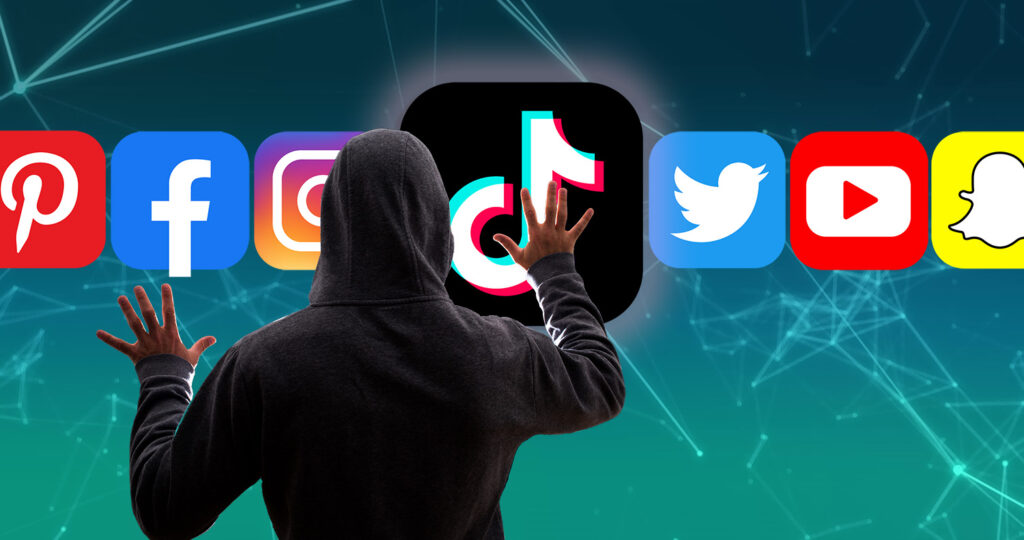(Note: This is Part 3 of a 3 Part series on radio and social media. Part 1 is here, and Part 2 is here.)
 The winds of change are blowing toward social media regulation by government or self-regulation by the social media companies or both. If this occurs, radio stations must consider the storm clouds that are building and the potential for significant changes in how social media is regulated. Stations should not allow their brands and social media audiences to blow around in the wind, but instead they should chart their own course and know where they want to land.
The winds of change are blowing toward social media regulation by government or self-regulation by the social media companies or both. If this occurs, radio stations must consider the storm clouds that are building and the potential for significant changes in how social media is regulated. Stations should not allow their brands and social media audiences to blow around in the wind, but instead they should chart their own course and know where they want to land.
Here is what is being discussed—
- Government regulation: Last year, citing that Facebook is “invading our privacy, promoting toxic content, and preying on children and teens,” Congress held hearings and considered a dozen bills to regulate Facebook. In a case that could drag on for years, “a federal judge said the Federal Trade Commission could move forward with a lawsuit seeking to break up Meta, after the company had argued the complaint should be dismissed.” This year, CNBC reported that, “More social media regulation is coming in 2023, members of Congress say,” and that “Days after Congress passed a bipartisan spending bill banning TikTok from government devices, legislators and advocates say they are looking to further regulate social media companies in 2023.” One congressperson compared TikTok to “digital fentanyl” and feels a national ban of the app. CBS News quotes John Carlin, former head of the Justice Department’s National Security Division, data “is the new oil,” and that, “It’s not just the collection or theft of that data, it’s also manipulating what it is that you see. And the question is for the national security professionals, do we want China determining what it is that we see here in America?”
- Social media self-regulation: A report in the Harvard Business Review makes the case that, “history suggests that modern digital platforms should not wait for governments to impose controls; they should act decisively and pro-actively now.” The Brookings Institute says, “Transparency is essential for effective social media regulation,” but is skeptical that self-regulation would succeed
Once again, Paragon Consultants have unique perspectives to offer.

As with Twitter, I’m taking a hard line on TikTok. Yes, it’s grown like wildfire and is the go-to app for many people, especially younger people. I just can’t get past the first word I heard from the U.S. government about TikTok, which is that the app is a data invasion by a foreign government that could have ruthless intentions. My further concern is that the U.S. version of TikTok is not moderated or filtered as it is in China with the intention to undermine the moral and ethical underpinnings of our people. Concern #1 connects directly to concern #2. TikTok is not going to end well. As with Twitter, the safe route is for radio stations to drop TikTok before their brands are soiled in future scandal and public backlash. If that happens, stations that continued to use the app for promotion and revenue will be dinged for participating in a selfish feeding frenzy. Pigs get fed, hogs get slaughtered.
This is a fast-moving situation. In the last 48 hours or so, over 50 public radio stations across the country have ceased posting on Twitter or have cancelled their account. This includes Paragon client KERA Dallas, which alerted their audience with an announcement on their website today and with a final (for now) tweet that pushed audiences to their website, Facebook, Instagram, LinkedIn, newsletters, and their own radio and TV station broadcasts. Bravo!
Michelle Conrad, Paragon Digital Media Consultant:

Given the current state of TikTok, I also feel that it’s dangerous for radio stations to invest in TikTok content, promotion and advertising. At the end of the day, you don’t control the channel. Your radio brand safety, as well as your listeners and followers, should be the priority.
With a situation that is still evolving, it’s normal to feel confused about the steps your organization should take. Here are some things to consider:
- With the change we are seeing across all social channels, stations should reset their social media policies to serve as a trusted filter between their audiences and the social media platforms they use. One way to do this is through education of privacy policies as a brand and for users; take that knowledge and create a strategic plan of action. This could result in taking a stand against the platform and suspending use, throwing it out of your social strategy all together, or staying put. I would recommend following what’s going on with TikTok and educating your users (and any other social media related legality issues).
- Transparency with your audience is key here. If you decide to suspend or step away completely from social channels, let them know why rather than just disappearing. At the end of the day, it would encourage your listeners and followers to do their own research and make informed decisions to protect their own privacy.
- Waiting to see what happens is not the smartest or safest route to take. Now is the time to stand up as a trusted brand and walk away before the government bans the platform or before damaging information comes out about the misuse of data that could blow back on your station if you overstay.
- Ask yourself: Is the engagement you receive from TikTok worth it? Do eyeballs on your content weigh more than the data privacy and national security threat? Does continuing use of TikTok add value to people and society? Do the “morals” of the platform align with yours?
Lastly, the bigger question remains. If you leave TikTok and Twitter, where will you connect with your audience? Stations should increase efforts to build your station’s internal listenership and member databases for more direct digital listener relationships. Is there a way to integrate more of a social engagement opportunity through your app?
Summary:
Radio stations should review their social media policies and ensure that they serve as a trusted filter between their audiences and the social media platforms that stations use. Here’s how:
- Stations should double down on their one-to-one listener communications with more direct digital listener relationships that is reinforced by your broadcast messaging.
- Long-term, if a high level of trust is attained, it’s possible that this strategy could lead to radio stations providing exclusive (and safe) content, and potentially through pay walls. For example, what WBEZ and the Chicago Sun Times are doing with benefits for registered users (not necessarily paid or members) is really interesting.
- Direct, user addressable relationships, i.e. station emails, texting, app notifications, and newsletters, will never abuse your listener relations or privacy.
We’re hopeful our blog series will stoke much-needed conversations at your radio station. Regardless of where you land, these are critical conversations to have now and before you’re in a reactive, damage control state.
Learn more about Mike Henry and Michelle Conrad.
Please use our Comments to let us know if you agree or disagree, and what, if any, actions you are taking with your radio station.

Leave A Comment